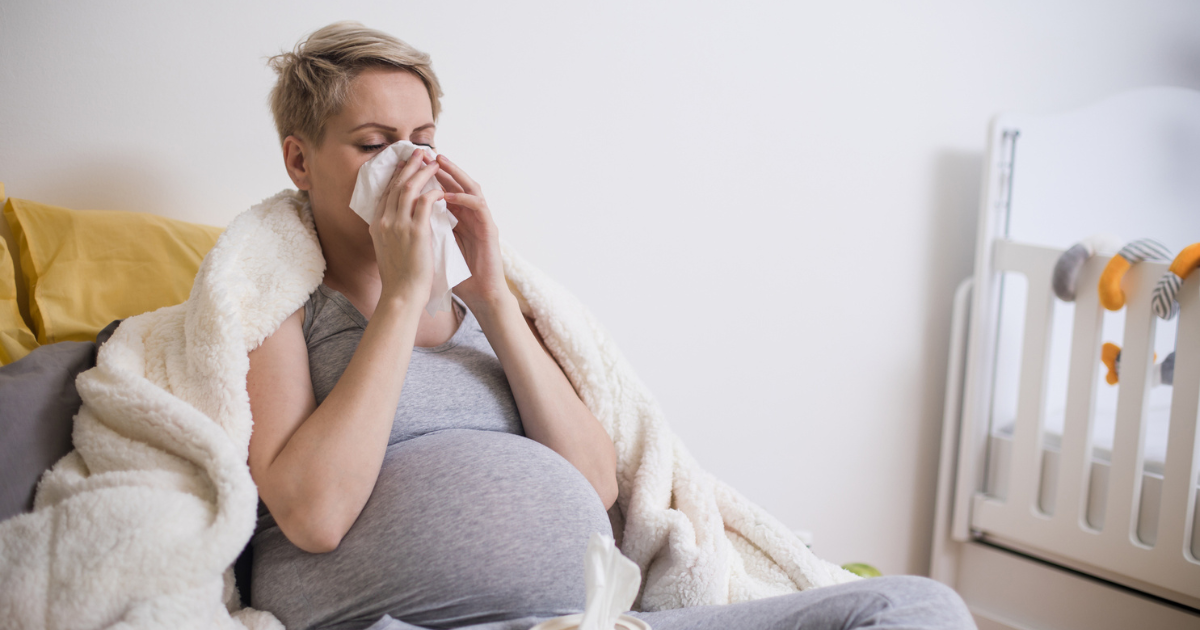What allergy medications are safe to use during pregnancy?

When seasonal allergies are making us miserable, we want a remedy –right now. But if you’re pregnant, it’s wise to question what is safe. While many allergy medications and certain pain medications are safe during pregnancy, some should be avoided.
If you’ve dealt with allergies before, your medicine cabinet may be full of options. But while pregnant, your obstetrician is your best health advisor. Keep the discussion open and ask for their advice before taking new medications.
Do allergies affect pregnancy or get worse when pregnant?
Besides being uncomfortable, allergies don’t affect pregnancy in worrisome ways. However, allergies may get slightly worse when pregnant.
“Most of the increase in symptoms is actually due to inflammation of the mucus membranes, like in the nasal passageways,” says Nebraska Medicine obstetrician Karen Carlson, MD. “Many women will also mouth breathe during pregnancy, which can cause dryness that can increase symptoms of allergies.
Allergy medications in the first trimester
Try to avoid any medications that are not necessary during the first trimester. While some antihistamines are OK, avoid decongestants for at least the first trimester.
“One of the medications we particularly like to avoid is pseudoephedrine (Sudafed®), which is a decongestant,” adds Dr. Carlson. “It has been possibly related to some birth defects when used in the first trimester. Additionally, it can cause an increase in blood pressure, so it is not my favorite medication for use during pregnancy.”
Allergies and pregnancy, what can I take?
Many over-the-counter allergy medications are safe during pregnancy, but there are some to avoid. Certain antihistamines may also contain decongestants (see above). Be sure to read the product labels. Look for the letter “D” at the end of the brand name to spot those containing decongestants, or you might notice words like “congestion relief” on the package.
Consider trying a nonmedication solution first to see if it works for you.
Nonmedication remedies:
- Avoid triggers by limiting your exposure to them
- Saline nasal drops or spray
- Warm salt water gargle
- Nasal sinus rinse (like a neti pot). Use bottled water that has been distilled or sterilized
- Shower after coming in from outside. A warm shower can also help to open up your airways
- Avoid opening windows if the allergen counts are high
- Exercise may help reduce nasal inflammation
- Nasal strips or elevating the head of your bed (30 to 45 degrees)
- A humidifier can help moisten the air and may soothe nasal passages
Safe OTC medications:
- Diphenhydramine (Benadryl®)
- Loratidine (Claritin®)
- Cetirizine (Zyrtec®)
- Nasal steroid (Flonase®)
- Guaifenesin (plain Mucinex®)
- Mentholated cream (Vicks Vapor Rub®)
- Afrin® may be used, but only for a short time (three days or less)
Be advised: Do not take the sustained action (SA) or the multi-symptom form of these drugs.
Talk with your doctor if OTC medications don’t help. A course of oral steroids may be considered if absolutely necessary.
What about new allergies or allergy shots during pregnancy?
New allergies can be treated with the above-mentioned medications, but allergy shots may be another matter to discuss with your doctor. “It is not recommended to start a new program of allergy shots for desensitization during pregnancy,” advises Dr. Carlson. “If a patient is already doing them, they can be continued, but usually without increasing the dose of allergens given until after pregnancy.”
You can take comfort in knowing your allergies won’t affect a healthy pregnancy, but how you treat the symptoms matter – team up with your doctor to choose what is best for your health and situation.
Find out more about the Olson Center for Women’s Health obstetrics and gynecology services. Call 800.922.0000 to make an appointment.







